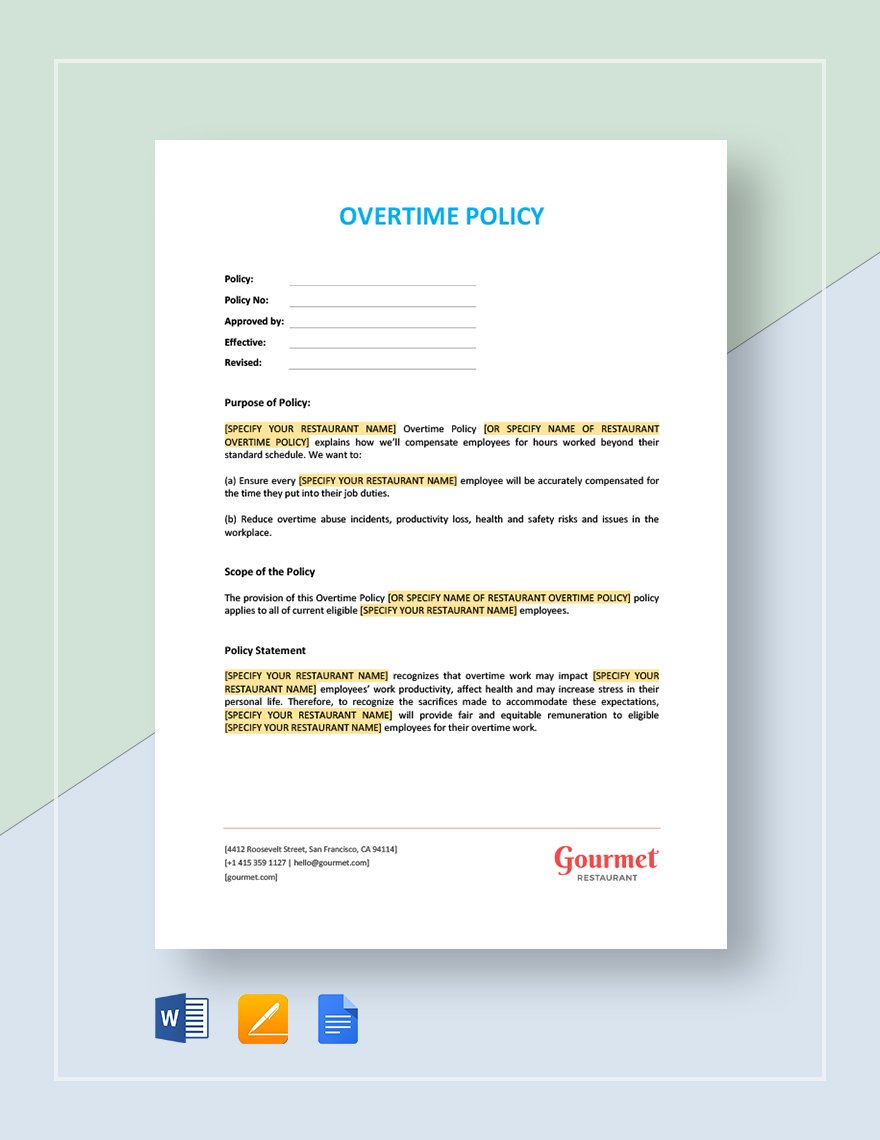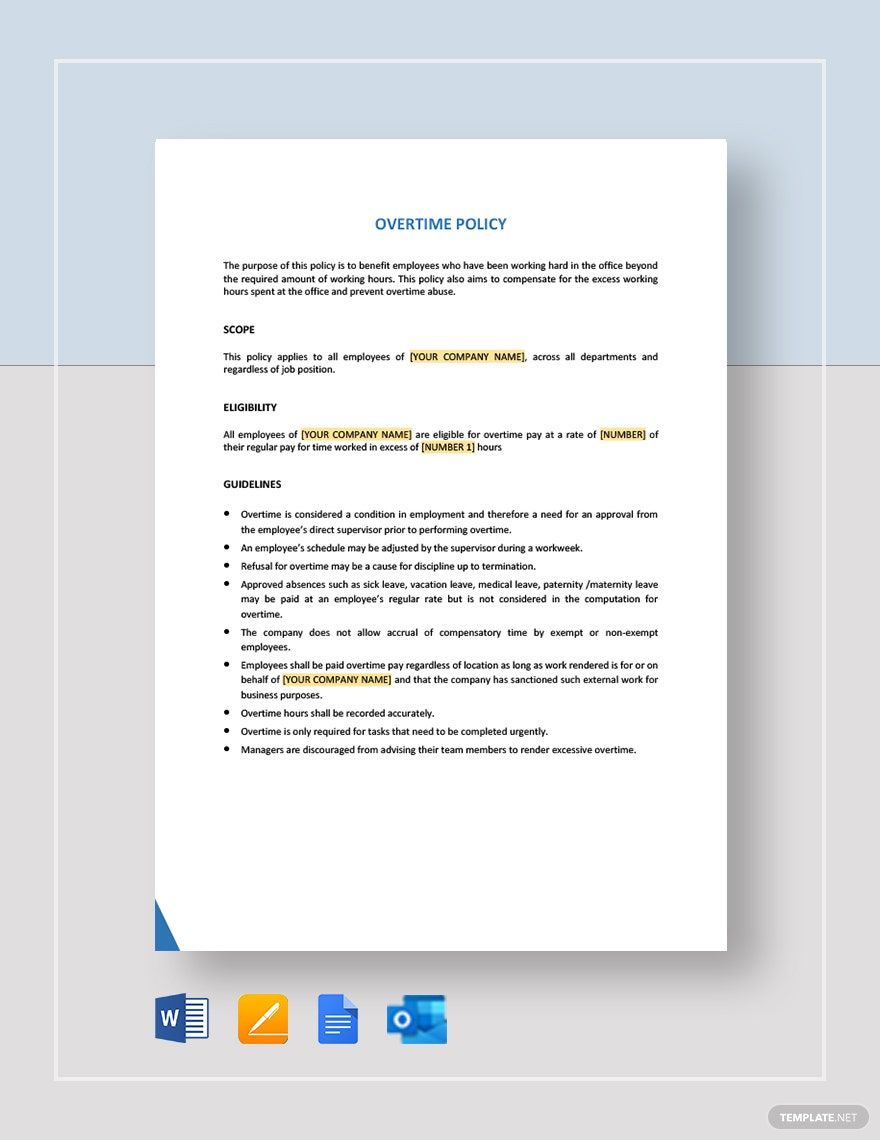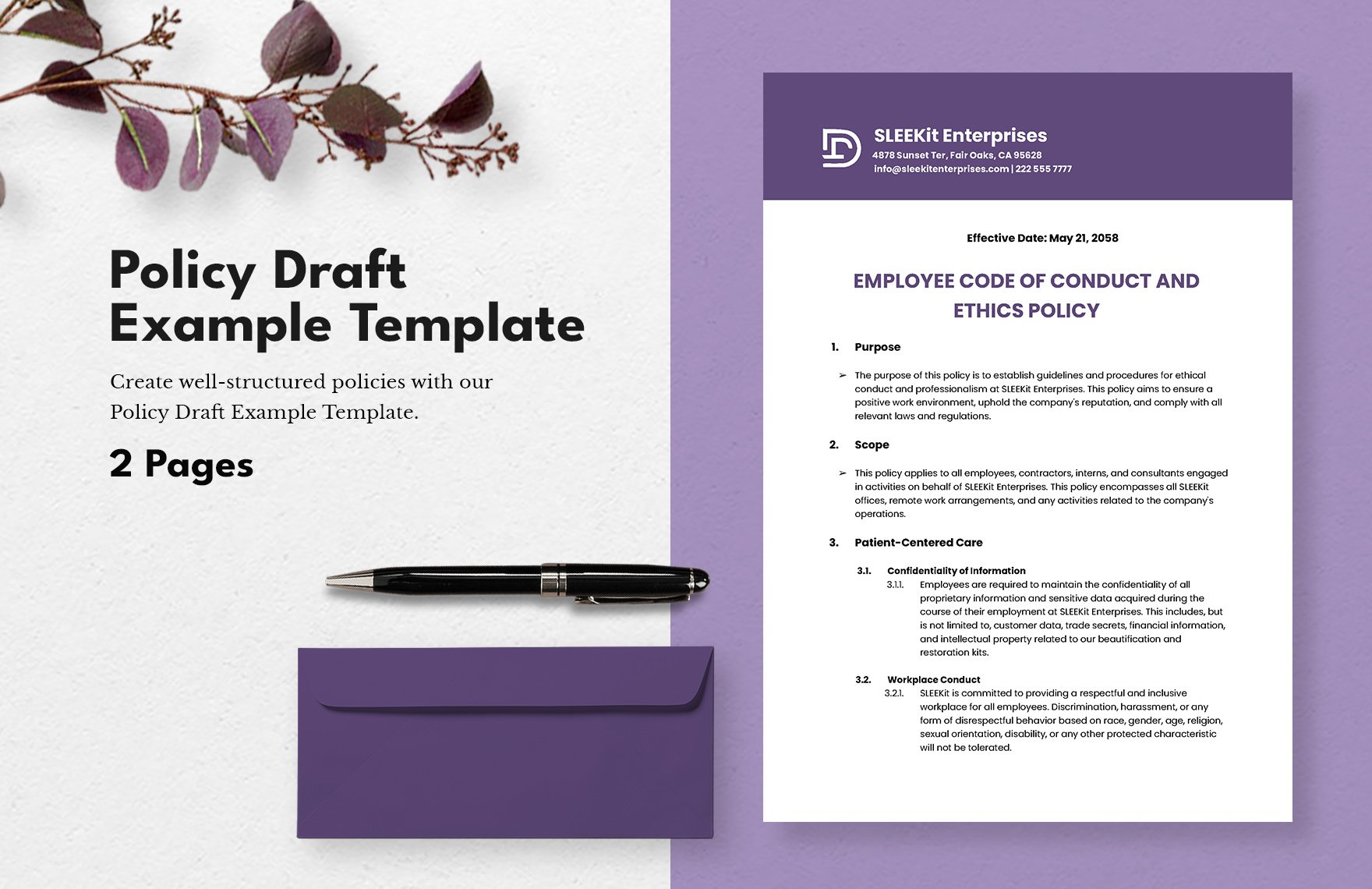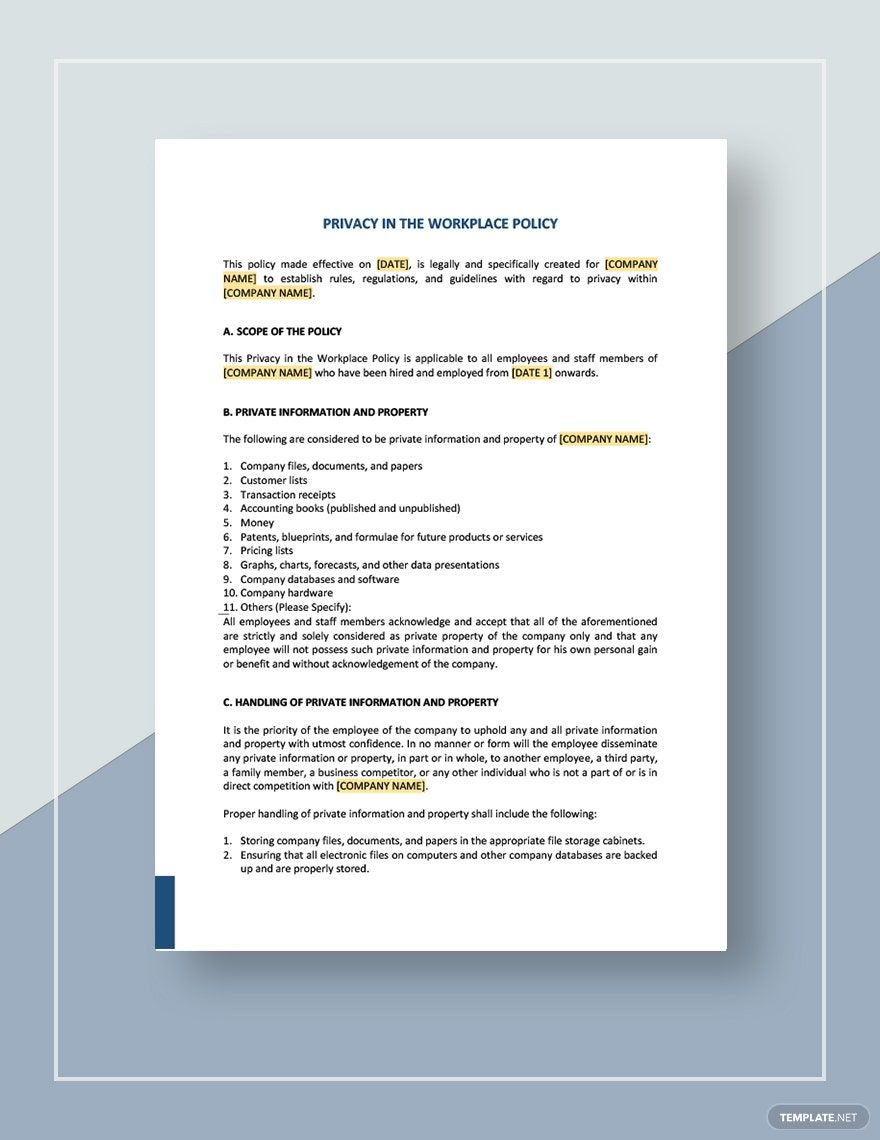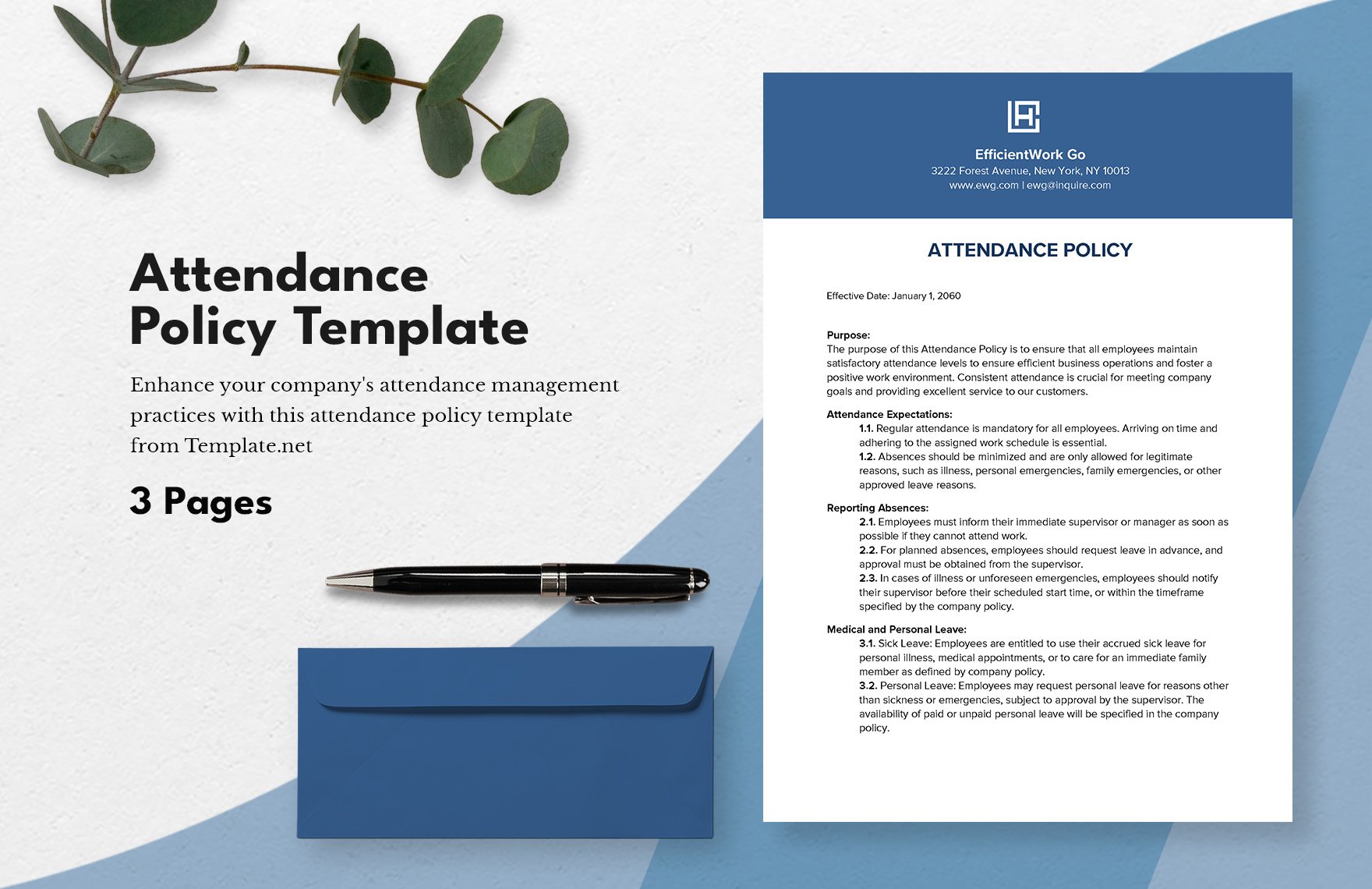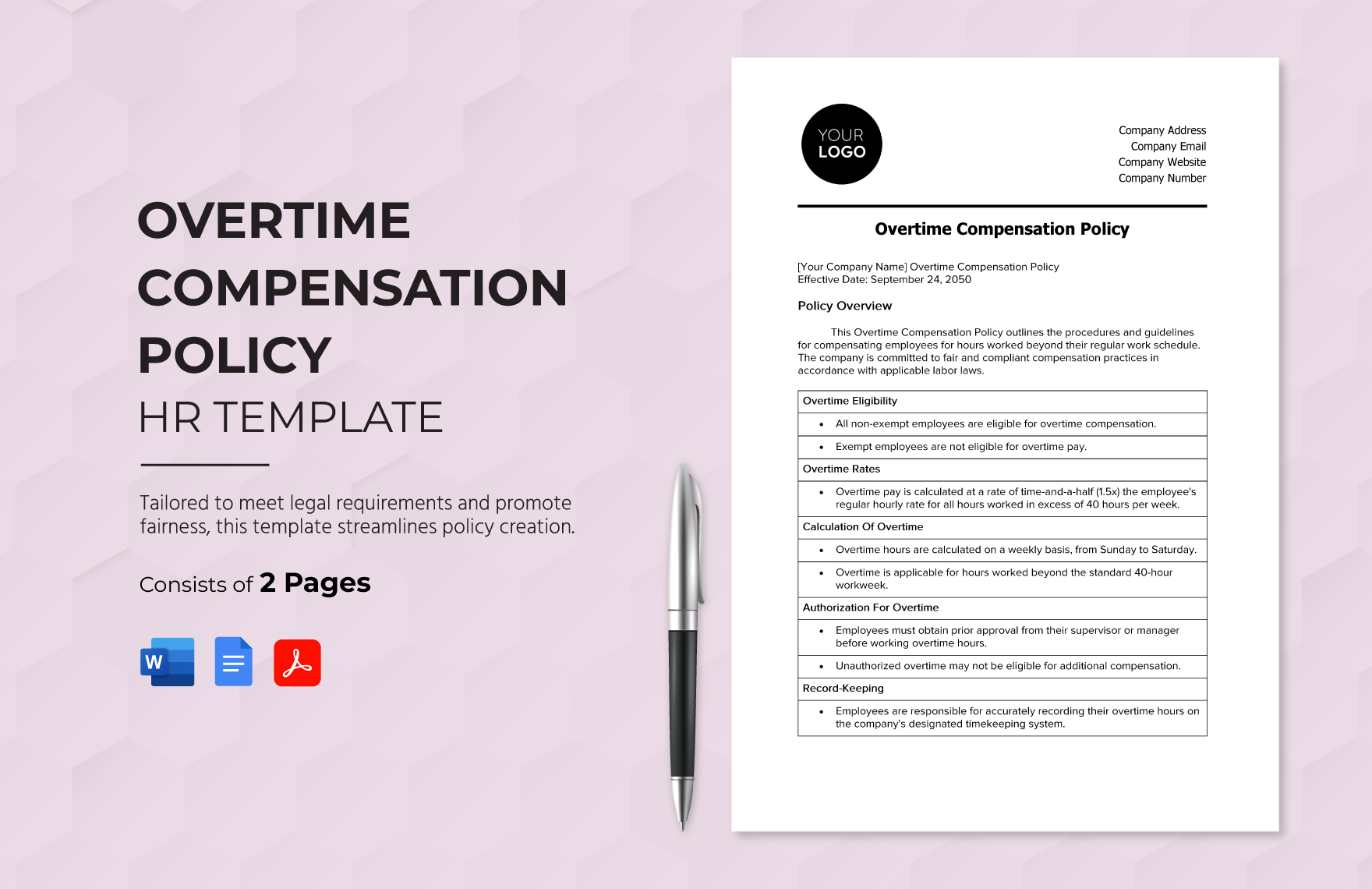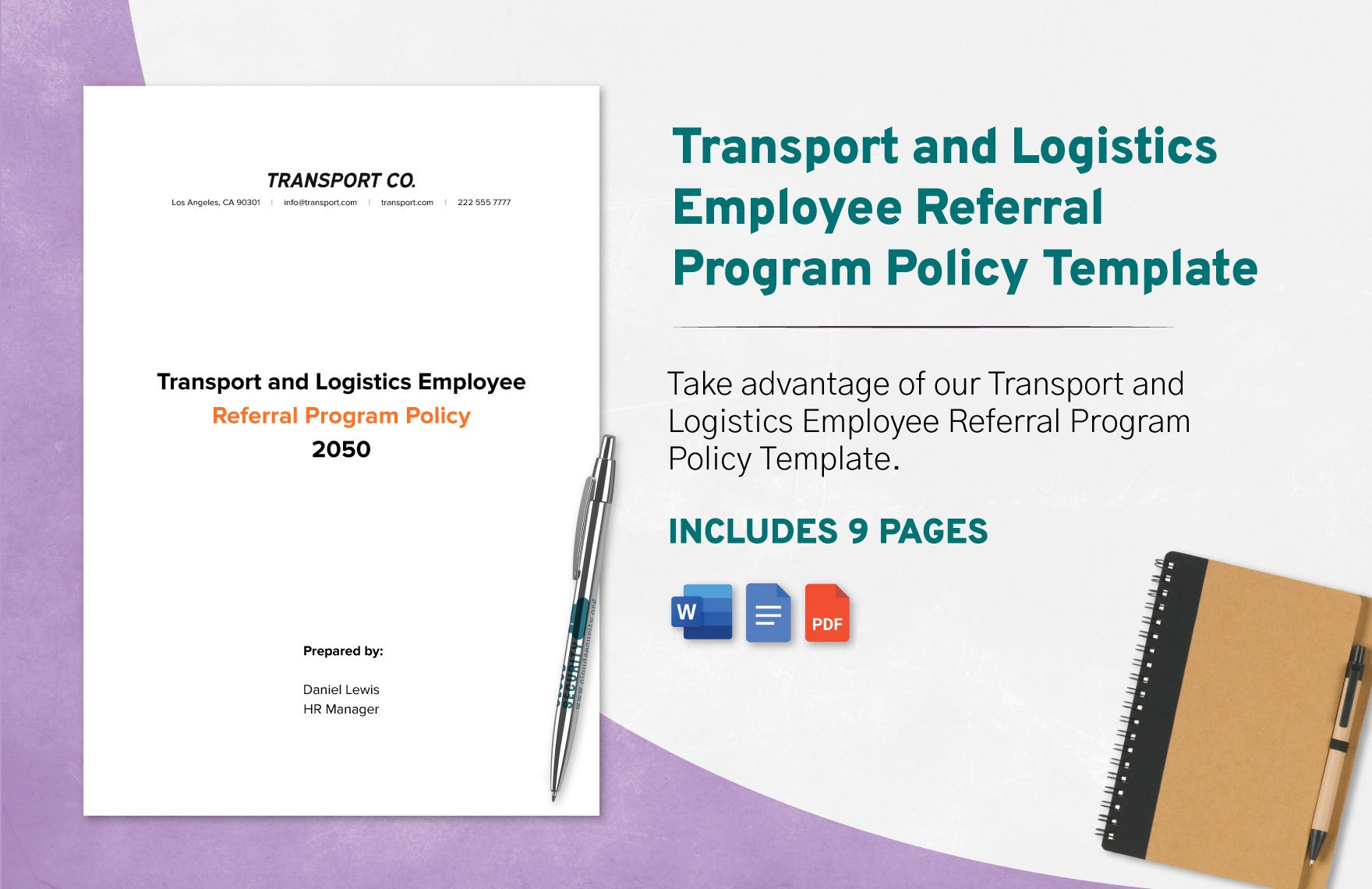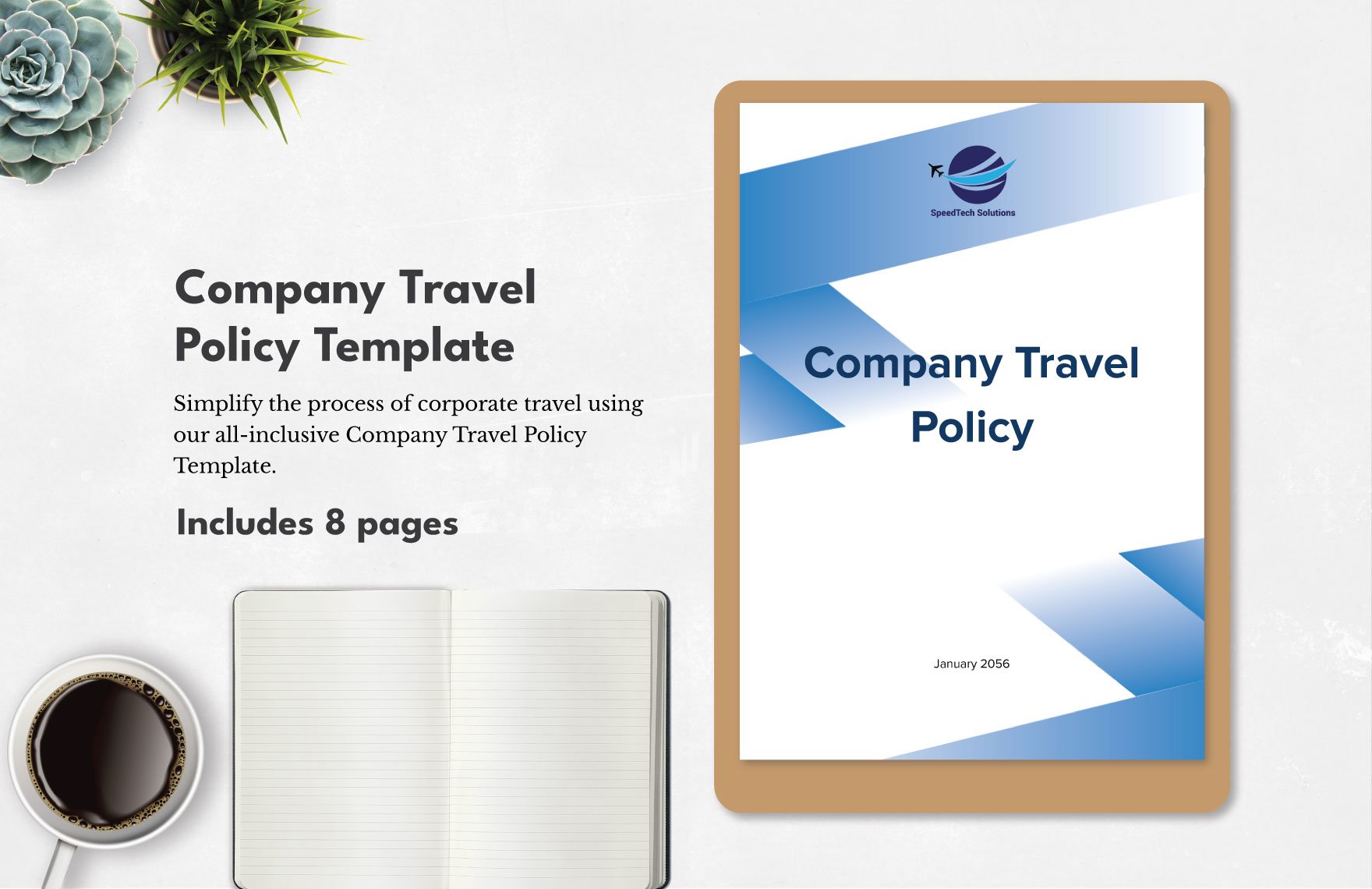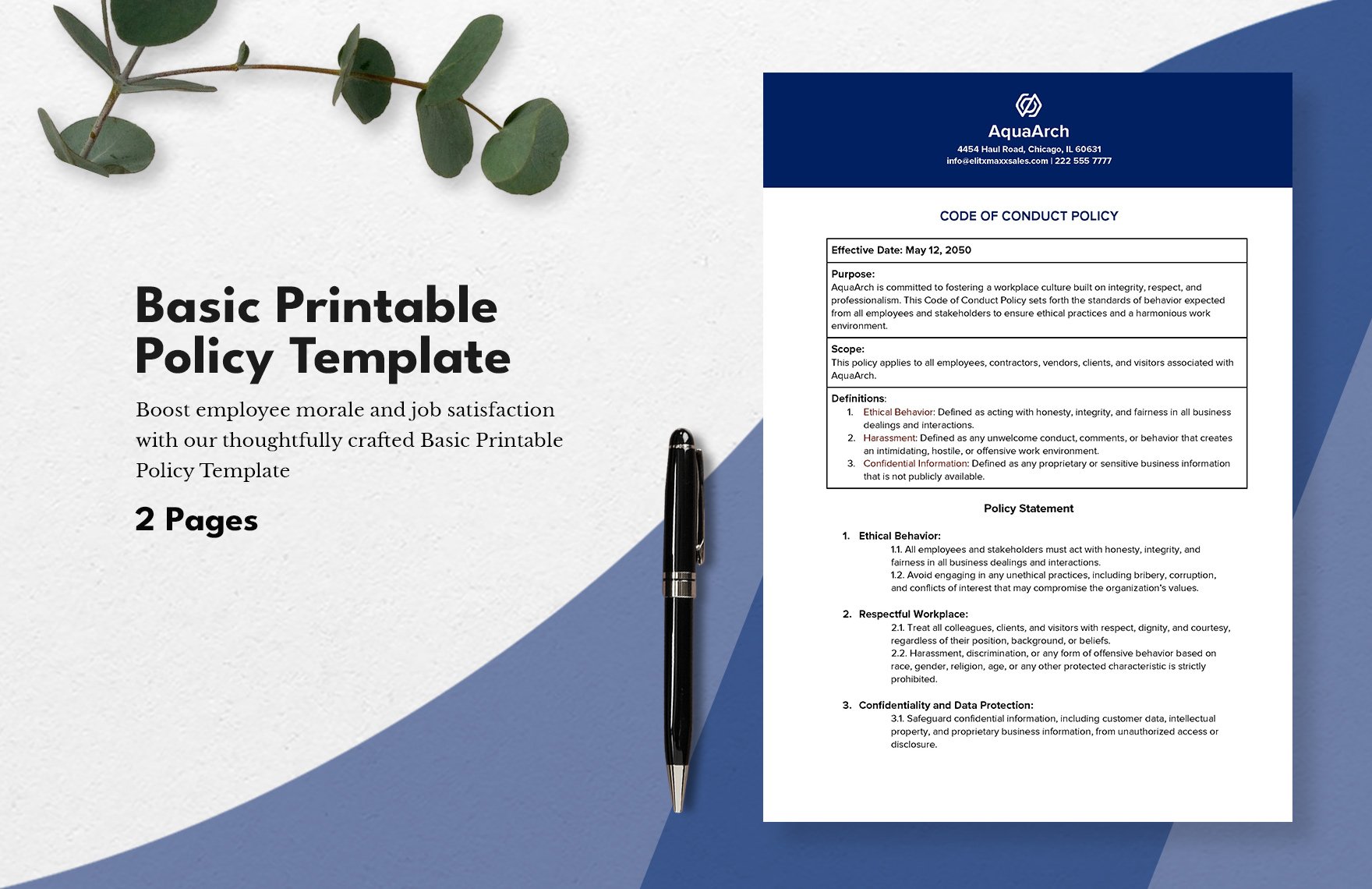Busy at work and probably thinking about extending working hours to compensate for your unfinished tasks? Whether you are an employee who wants to know about the policy of working more hours than your usual or an employer who wants to emphasize the need to work overtime, you can definitely benefit from our 100% customizable, easily editable, printable, and high-quality Overtime Policy templates! Download our Overtime Policy Templates that are ready-made and professionally written just for you! These beautifully designed templates are content ready and you can just simply fill in necessary details to make it your own. These premium HR templates can be opened in all versions of Google Docs, MS Word (docx), Pages (.pages). So, what are you waiting for? Avail some of these premium templates today!
FREE Overtime Policy Templates
Outline Overtime Policy in Employee Handbooks, Memo, and Flowchart Using Templates from Template.net! With Various Templates and Formats to Choose from You Can Detail Your Mandatory Payroll, Voluntary Rate, Sample Memo Letter, and Unauthorized Policies of Your Overtime Policy in Just a Few Minutes! Download Yours Now for Free!
What is an Overtime Policy?
Overtime is normally defined as any time that is worked beyond an employee's normal working hours. The usual working hours of an employee is eight hours a day or forty hours a week and beyond that, the employee is already considered as working overtime. The overtime policy, which falls into Federal Fair Labor Standards Act (FLSA), should require that all hours worked which includes all hours of overtime shall be reported to the employer and that no overtime be worked unless the employer has requested it. The company shall always have codes about overtime policies for the employees to be guided. The employer will be the one handling the approval, contracts, and memoranda if ever overtime is mandatory or disapproved.
Overtime policies include agreements and contracts about exempt and non-exempt employees, cash advances, rules, shift rotations, overtime pays, and other matters of the management. Overtime policy is useful for both companies and employees to consider a condition of employment. Refusal to accept the overtime request when the notice has been given will cause for discipline and even termination.
How to Write an Overtime Policy
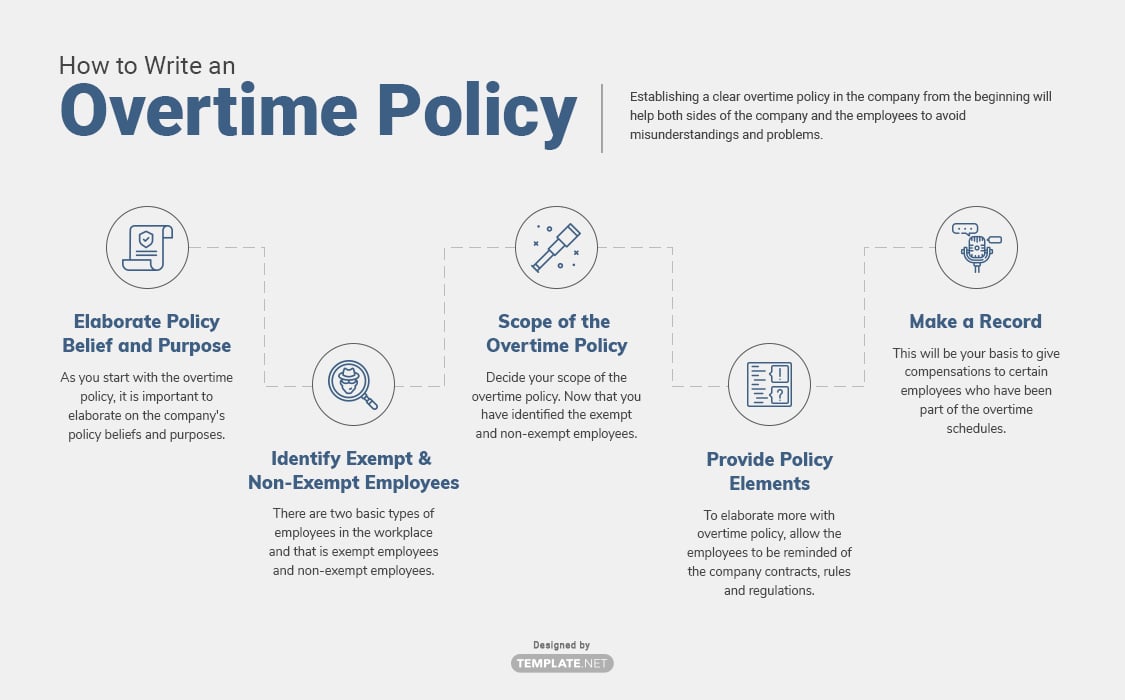
Establishing a clear overtime policy in the company from the beginning will help both sides of the company and the employees to avoid misunderstandings and problems. Here are the following steps to effectively write an overtime policy.
1. Elaborate Policy Belief and Purpose
As you start with the overtime policy, it is important to elaborate on the company's policy beliefs and purposes first before requesting the employees for the overtime policy. You must explain how to ensure the employees to be consistently and sufficiently compensated for the work schedule they put into their job duties and you must also state the purpose of having overtime. Make the employees understand that the effort is for the company itself. Do not overtime abuse to avoid issues like health and safety risks. Make sure to follow relevant ratification when assigning or compensating overtime hours to the employees.
2. Identify Exempt and Non-Exempt Employees
There are two basic types of employees in the workplace and that is exempt employees and non-exempt employees. Explain the workplace policy on what is the difference between these two. In simple terms, non-exempt employees must be paid overtime and on the other hand, exempt employees do not get overtime schedules.
Identify the following exempt and non-exempt employees in your industry to formally scope the overtime policy only for those who are requested in assigning and compensating those who will work with overtime schedules.
3. Scope of the Overtime Policy
Decide your scope of the overtime policy. Now that you have identified the exempt and non-exempt employees in the company, you can now specify who will be assigned and be compensated for the overtime schedules. The policy shall only be applied to those employees who are part of the scope of the overtime policy.
4. Provide Policy Elements
To elaborate more with overtime policy, allow the employees to be reminded of the company contracts, rules and regulations, and policies of the company itself. Overtime is only important for heavy workloads or other issues. Frequent overtime is not good for employees’ health, performance, and loss of productivity due to fatigue.
5. Make a Record
It is important to record overtime hours accurately and consistently. This will be your basis to give compensations to certain employees who have been part of the overtime schedules.
